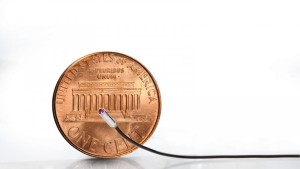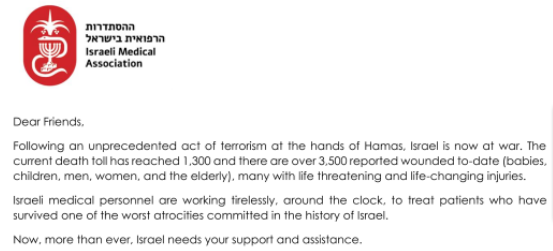 Acid reflux, or gastroesophageal reflux disease (GERD), affects up to one in four Americans. For most, acid-neutralizing medication can control the chronic heartburn and regurgitation of acid. Some need surgical repair of the esophageal valve that normally keeps reflux from occurring.
Acid reflux, or gastroesophageal reflux disease (GERD), affects up to one in four Americans. For most, acid-neutralizing medication can control the chronic heartburn and regurgitation of acid. Some need surgical repair of the esophageal valve that normally keeps reflux from occurring.
But what if medication isn’t helping and you don’t want surgery?
“We target that space in the middle. About 13 million to 15 million patients in the US fall into that category,” says Chris Rowland, CEO of Medigus, a medical-device company based in the Beersheva suburb of Omer.
Medigus pioneered an incision-free outpatient procedure that solves the reflux problem in about an hour. The MUSE (Medigus Ultrasonic Surgical Endostapler) System enables physicians to reconstruct the esophageal valve through the mouth, eliminating the need for surgery in eligible patients.
“Israel is where they grow food in the desert and drink water from the Mediterranean, so we shouldn’t be surprised what this company has developed in the middle of the Negev desert,” says Rowland, a veteran medical-device executive based in Danville, California.
The first batch of MUSE devices has been shipped to China – where Medigus signed a $17 million distribution deal — in anticipation of regulatory approval by the end of 2016.
Assembled in Israel and protected by more than 70 patents, MUSE consists of a surgical stapler, mini-ultrasonic positioning sights and a miniaturized flexible video camera.
A piece of MUSE in space
Rowland tells ISRAEL21c that the video camera — the world’s smallest — was offered for use in other markets. Among those that purchased it was the US space agency, NASA.
“One of our miniature cameras made in Omer, Israel, is orbiting the earth right now on the VIPIR robotic satellite refueling system,” Rowland reveals.
Medigus is also looking into applying its unique camera-stapling-ultrasound system to other gastrointestinal-tract procedures.
“The next will be in the field of GI oncology,” says Rowland, who was wooed to Medigus in 2013 by OrbiMed, a global healthcare VC fund that invests heavily in Israeli medical innovations.
OrbiMed thought Rowland was a good match because from 2006 to 2009 he was president of the American arm of Given Imaging – the legendary Israel-based pioneer in capsule endoscopy to visualize, diagnose and monitor the digestive system. He then headed IntraPace, a California company developing a minimally invasive device for treating obesity.
“I took a look at Medigus because they asked me to. I had been to Israel many times but I had never been to Beersheva. When I visited the company,I couldn’t believe they had such a compelling tool to perform this procedure through the mouth instead of the skin. I had never seen anything like it.”
Rowland joined the board of directors and was named CEO in the fourth quarter of 2013, as the company honed its technology based on clinical trials and prepared to launch in the market.
Co-development on the horizon
MUSE recently received a CPT code for Medicare reimbursement in the United States.
“Our two largest markets, the US and Germany, are both reimbursing physicians for this procedure, as of this year. That is how companies like ours break through,” says Rowland.“Our product serves patients well and serves the healthcare market well because it costs less than surgical or inpatient procedures.”
Medigus employs about 40 people in Israel, eight in the United States and one in Europe.
“Israel is the home office, the hub. I want to let the people of the startup nation do what they do best: create, develop, invent and produce very innovative medical technologies,” Rowland tells ISRAEL21c. “The downstream functions of sales, marketing, clinical and user support are handled in other locations. We work very well together.”
Rowland sees 2016 as a pivotal year for Medigus.
“Co-development is what’s next for our little company in the desert. There is some strategic interest from companies that like the platform capability and 2016 will be an exciting transition year for us,” he predicts.
“I see us getting to be a global organization. But we will keep the headquarters in Omer, because the relentless pursuit of creation and development is there.”
For more information, click here. The company also offers physician finder websites in English, Hebrew and German.


